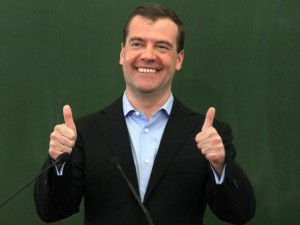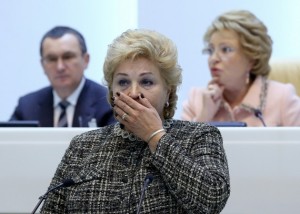
Russian officials’ increasingly frequent statements about the lack of funds in the country’s budget to cover even the bare necessities of life make one almost believe their sincerity. It is not that officials themselves experience money problems. The most recent examples with Medvedev’s 35-billion-ruble country house or 8 billion rubles in cash discovered in the possession of the temporary acting head of Russia’s anti-corruption agency, colonel Zakharchenko, do not leave any doubts regarding Russian officials’ success in siphoning off the national wealth. However, besides a few million of ministers, lawmakers, policemen and prison officers who are comfortably settled in life, there are some 140 million citizens in Russia, whose living standards directly depend on budget funds left over after officials’ rent-seeking activities.
In late 2015 and early 2016, the country’s budget was adopted with a deficit and later subject to sequestration. According to the most recent official figures, in the first half of 2016, Russia’s budget deficit has reached 1.52 trillion rubles. Over this period, Russian tax and customs services have collected around 5.24 trillion rubles, and, all other revenues included, the country’s gross national income reached the lower-than-expected 5.87 trillion rubles, since the 2016 draft budget envisaged 13.74 trillion rubles in revenues. It is obvious that at the end of the year, this figure will prove to be unattainable, as Medvedev sincerely admits.
The government traditionally rejects the option of increasing taxes and thus suggests balancing the budget for the next three years by cutting spending by 3.5 trillion rubles.
There are also the Reserve Fund and the National Welfare Fund (NWF), both had been filled during the years marked by high oil prices, but they are hardly the source of endless funds. This year, 1.17 trillion rubles have already been withdrawn from the Reserve Fund to cover the budget deficit, and by the end of 2016 this figure is expected to reach from 2.2 to 3 billion rubles. According to the Russian Finance Ministry, as of September 1, 2016, the Reserve Fund had only 2.09 trillion rubles left, and there are obviously no means of replenishing it since chances are small that world prices on oil, gas and other raw materials are going to rise anytime soon. At 4.7 trillion rubles, the National Welfare Fund is doing slightly better, but one has to consider that money from this Fund is used to cover projects approved personally by Putin. According to specialists, up to one third of funds from the NWF can be invested in illiquid assets.
According to the Central Bank, Russia’s gold and foreign exchange reserves, that reached nearly $600 billion at the peak in oil prices in 2008, currently amount to about $395 (25.3 trillion rubles). However, considering that it includes both the National Welfare Fund and the Reserve Fund, the country’s liquid reserves might in reality be considerably lower.

According to a recent statement of the First Deputy Finance Minister, Tatyana Nesterenko, only the country’s accumulated reserves allow the authorities to keep up an image of stability, and by the end of 2017 the government will not even have enough money to pay civil servants’ salaries. It is possible that Mrs. Nesterenko intentionally exaggerates or labors under a sincere mistake, and Russia has enough reserves to not only cover next year’s expenses but to last till Putin’s re-election in 2018 and even a couple of years more. One thing is clear and beyond any doubt: After Putin is gone, the country will have to pay an enormous price for this notorious stability.





